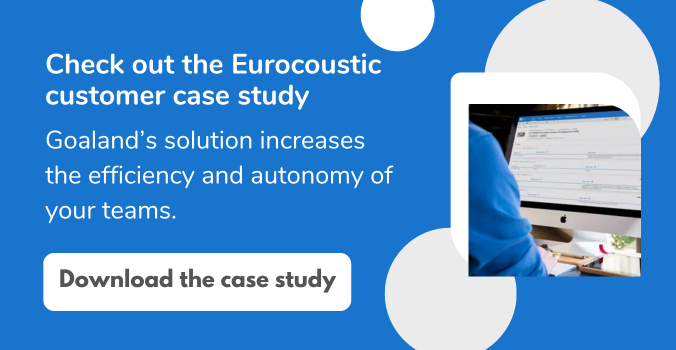As new technologies develop, 73% of today's consumers1 use all the information available to them to research a product. This change in the customer journey makes it necessary for businesses to implement an omnichannel marketing strategy which is the best possible response to the new demands of buyers, providing them with the right information at the right time to ensure that their product experience is consistent and satisfactory.
To implement an omnichannel strategy, it is essential to use PIM (Product Information Management) software. PIM guarantees the relevancy and consistency of product information on each selling channel.
#What is an omnichannel strategy?
An omnichannel strategy is the creation of synergies between all your selling channels. These days it is essential to provide the best possible product experience for your customers. Businesses that implement omnichannel strategies retain an average of 89% of their customers2.

Provide consistent product information
At each step of the customer journey, the buyer expects to find consistent information on each selling channel: products, prices, technical features… If a buyer finds an offer on a product, they expect it to be the same on eCommerce sites and in physical stores. Inconsistencies disrupt the customer journey and can prevent them from making their purchase.
To remain competitive, a brand must provide the customer with consistent and up to date product information at each stage of their customer journey.
#Deliver a coherent product experience
75% of buyers3 want their product experience to be relevant to the channels that they use. When a buyer uses a specific information channel, they expect to find unique product information which provides a real added value to the product. A brand that simply duplicates product information across each of their selling channels, runs the risk of boring the consumer.
“Duplicate content” has a negative impact on the customer's product experience.
#PIM: the essential tool for your omnichannel strategy
Implementing an omnichannel strategy requires that you have full control over your product information. PIM (Product Information Management) software lets you provide the customer with consistent and accurate product information at every step of the customer journey.
#Guarantee the uniformity of product information
In a company, product information is often dispersed among various information sources: ERP, CRM, Excel files… When several different teams oversee the quality of product information, this dispersal of data increases the likeliness of errors: data duplications, incomplete or incorrect information…

PIM allows you to provide the buyer with the appropriate information at all times. Using a PIM allows the Product and Marketing teams to rely on a unique and reliable product information sources with complete, precise, up-to-date, and validated information.
#Guarantee the relevancy of product information
Each selling channel has its specific requirements. PIM allows you to adapt product data to the format demands of each channel: size of images, classification matches, content transformation… In an online sales context, the consistency of product information is guaranteed on each eCommerce platform: Marketplaces, websites, mobile applications…
#Goaland's PIM solution: to ensure the success of your omnichannel strategy
With Goaland's PIM you can be sure of a successful implementation of your omnichannel strategy. With its workflow engine, product data is updated, enriched, and validated before distribution on your selling channels. A lookup table allows you to adapt product information to the required format (size of product images, features used, set number of characters…).
Goaland is fully integrated into your information system and interfaces with your other applications: ERP, CRM, DAM… At the core of your IS, Goaland allows you to communicate high-quality, coherent, and consistent product information to all your selling channels: websites (CMS, eCommerce platforms), mobile applications or assisted page layout tools.
1Harvard Business Review. (2017, 3 january). A Study of 46,000 Shoppers Shows That Omnichannel Retailing Works.
2Salesforce. The Growing Power of Omnichannel Marketing.
3Salesforce. Customer Expectations Hit All-Time Highs.







